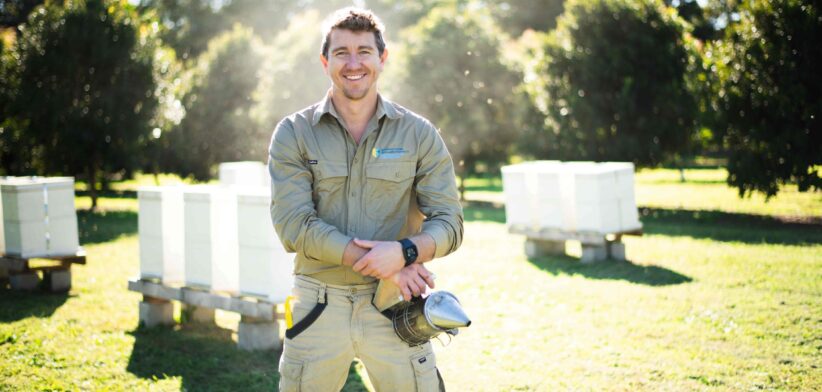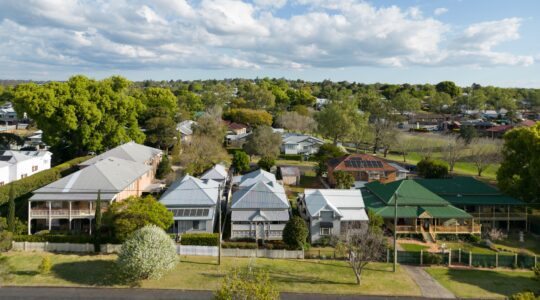Southern Cross University has opened a new Bee Research and Extension Lab focussed on managing the devastating Varroa destructor mite.
Varroa poses one of the biggest threats to Australia’s beekeeping and pollination-dependent industries.
Director of the new Bee Research and Extension Lab, Cooper Schouten, said Varroa was the leading cause of colony losses globally.
“We have 35 pollination-dependent crops in Australia that need healthy honey bees for viable pollination,” Dr Schouten said.
“The majority of our bee labs in Australian universities have been closing down as their leaders, among many technical experts in the industry, have retired. We urgently need more capacity.
“At Southern Cross University we are seeking to fill part of that void by developing new research to support Australian beekeepers and ensure our food security.”
The new bee lab will undertake applied research on more affordable Varroa controls and implement field days and develop practical guides to manage Varroa for Australian conditions.
“We have decades of Varroa research and industry experience we can draw on from other countries, yet Australia has unique climate, biodiversity and agricultural systems,” Dr Schouten said.
“To protect against Varroa, beekeepers will need to invest significant time and resources to monitor, manage and replace colonies, and we are keen to work with the private sector to develop and communicate the latest research about how to do that and remain profitable.”
Dr Schouten said, if left unchecked, the Varroa mite could devastate bee populations as it impedes the ability of bees to fly, orientate and communicate. It spreads viruses – eventually causing hives to collapse.
The Australian Bureau of Agricultural and Resource Economics and Sciences (ABARES) has estimated that Varroa could cost the industry up to $1.31 billion over the next 30 years.
The beekeeping industry also faces challenges such as low honey prices, high operational costs, declining access to floral resources, difficulty finding skilled staff and other major biosecurity threats like Tropilaelaps mites and bee viruses (e.g. Deformed wing virus).
Southern Cross Senior Deputy Vice Chancellor (Research) Professor Mary Spongberg said she was delighted to see the new lab begin to take shape.
“This is critical work and it has national and also global significance,” she said.
“At Southern Cross University we are solutions-focused, working closely with industry to ensure better outcomes for local beekeepers, but also research that has global impact.”
The new Bee Lab is based in the Northern Rivers of NSW. The on-campus apiary provides opportunities for student and industry engagement and a Bee Club for aspiring beekeepers to learn more about the University’s research and the art and science of beekeeping. Read more here.








